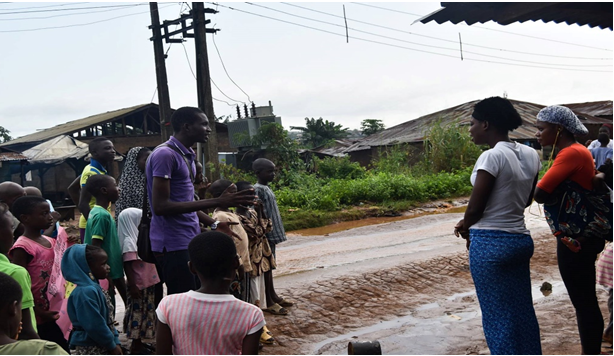“It’s the little things citizens do. That’s what will make the difference. My little thing is planting trees.”
It is exhilarating to interact with young people who believe that trees are planted for the future. Ayodele Sipasi Olalekan - an innovative farmer and environmental activist - is one of such people. Sipasi is the founder of L'Afrika Integrated Farms. One of his innovations; the Mobile Kitchen Garden, earned him the 2015 Hidden Eco-Hero Award of Eco-Tunza Generation and Samsung Engineering. Recently, he was listed among the Top 10 Go Green in the City Ambassador of Schneider Electric. Also, he is a Global Shaper of the World Economic Forum, focusing on Global Goal 13; 'Climate Action'.
Having B.Tech and M.Sc degrees relating to best agriculture practices, and being a speaker of eight indigenous and international languages, including Kiswahili and French, makes him stand out. Sipasi has impacted the growing environmental space in Nigeria, especially through his works in rural areas.
For this month; September 2016 (which is also his birth month), Sipasi is GCI's Green Personality, and Oghenechovwen C. Oghenekevwe reached out to him to ask few, interesting questions.
What aspects of your job do you particularly enjoy?
I enjoy engaging rural areas: training farmers and young people on environmentally friendly living, and sustainable best agricultural practices. Running these trainings using only Local Content Initiative (solving problems with available resources), makes it particularly enjoyable for me. Use of these local resources allows rural dwellers relate to the main issues.
In a lead up to the 2016 World Environmental Day, WED, you trained a total of 3,115 youths on environmental responsibility and sourced for 12,000 Khaya Senegalensis seeds for tree planting. What challenges did you face doing these?
Majority of the people in communities I trained did not have a knowledge of environmental issues and climate change. Because of this, it was difficult making them understand that climate change and its effects were real. Also, some parents were reluctant to allow their wards participate, as they were of the opinion that it distracted them from academic work, other people did not show up once they realized monetary gains were not available, and some participants did not want to get down on the dirty soil to plant. Most challenging was the inadequacy of volunteers.
In the report of your contributions to the WED celebrations, you raised a new perspective about how the struggle for survival and economic surge causes Nigerians to neglect nature. Is this neglect only peculiar amongst young people? Please throw more light on this.
Protecting our environment for the benefit of the present and future generations is an all-important and collective responsibility. What we have today is different: environmental neglect exists and it cuts across all ages. The economy and the environment are linked. If Nigeria is to have a comfortable, stable, economy, all activities, or inputs, which would lead to this steady state must be done in our own environment. For example, setting up large-scale industries would only be beneficial to the economy if it does not pollute the environment –air, lands, and water. To me, this is where most Nigerians miss it. In their bid to balance their standard of living, they ignore the ‘environmental side-effects’.
What do you regard as the most pressing problem the environmental sector in Nigeria needs to address?
Waste dumping should be dealt with across Nigeria. It does not make for cleaner and sustainable environments. We should focus on waste management and waste-to-wealth empowerment.
Profile:
Oghenekevwe, an ambassador at the Green Campus Initiative, currently serves on the World Oceans Day Youth Advisory Council. He loves writing and connecting with people, and he prefers his Garri with chilled water. Engage him via email: chrischovwen@gmail.com Facebook: /kevwe.chovwen or Twitter: @c_chovwen











